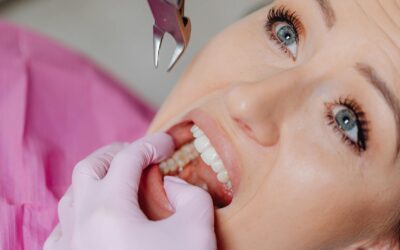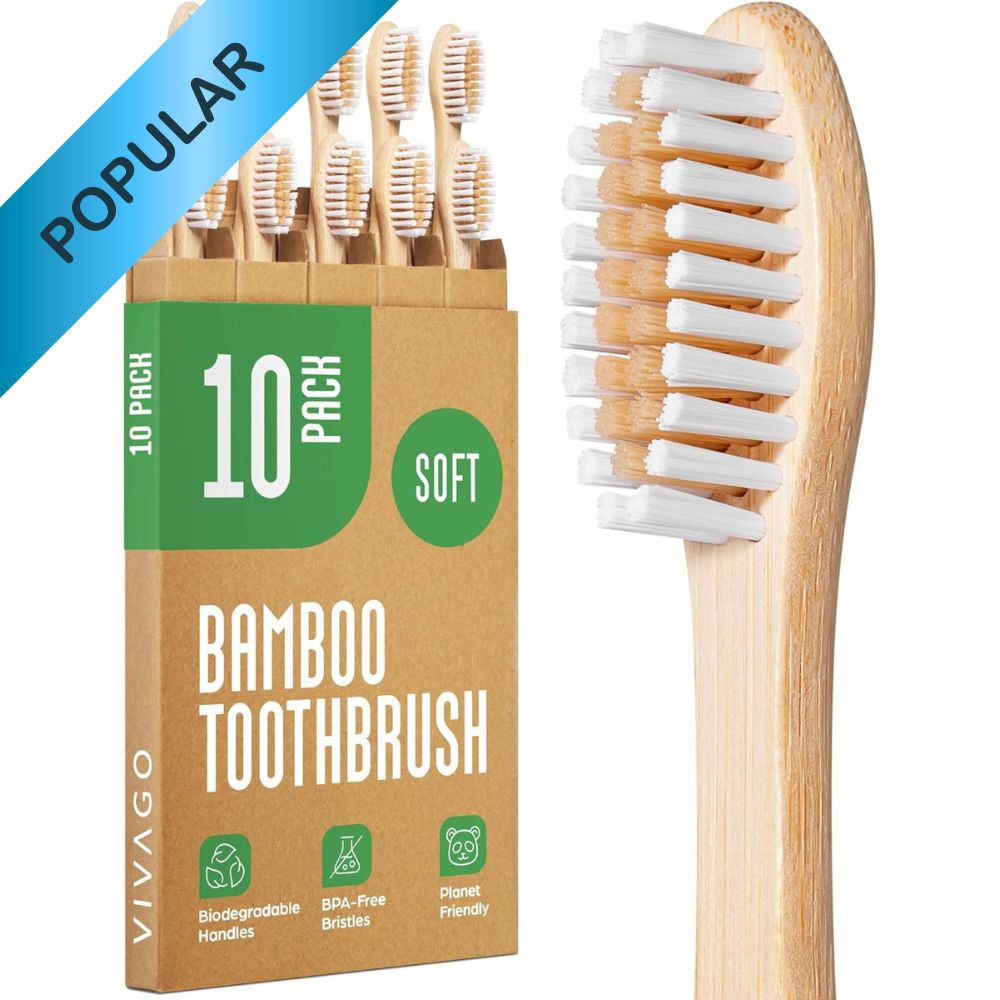If you’re worried about a wobbly tooth and searching for how to tighten a loose tooth at home, you’re not alone. While loose teeth are normal in children, in adults they often signal gum disease, injury, or other underlying oral health issues. It can be frightening—especially if chewing, speaking, or smiling feels different.
The good news? In certain cases, natural remedies and home care can help stabilize a loose tooth. While they won’t replace professional dental treatment, they may slow progression, strengthen gums, and provide relief.
According to the American Dental Association (ADA), gum health is the foundation of tooth stability. When gums and bone become weakened, teeth start shifting or loosening. Early intervention—including home remedies and lifestyle changes—can make a difference.
Note: A loose tooth in adults is never “normal.” While the remedies below can help, always consult a dentist for diagnosis and treatment. Home remedies are supportive, not curative.
Why Do Adult Teeth Become Loose?
Understanding the root causes can help you address them effectively.
1. Gum Disease (Periodontitis)
The most common reason for loose teeth in adults. Infections damage gum tissue and bone, making teeth unstable.
2. Trauma or Injury
A sudden impact (sports injury, fall, accident) or biting down on hard food can loosen a tooth.
3. Teeth Grinding (Bruxism)
Grinding or clenching creates excessive pressure, weakening the tooth’s support system.
4. Poor Oral Hygiene
Plaque and tartar buildup inflame gums, leading to periodontal pockets and mobility.
5. Bone Loss
Conditions like osteoporosis or vitamin deficiencies can cause bone resorption.
6. Other Causes
- Hormonal changes (pregnancy, menopause)
- Smoking
- Misaligned bite putting uneven pressure
Keep in Mind: Identifying the cause early makes remedies far more effective. Gum disease-related looseness, for example, responds well to improved hygiene and natural antimicrobial rinses.
How to Tighten a Loose Tooth at Home: 9 Proven Remedies
Here are proven home remedies and natural approaches backed by traditional use and modern research.
1. Saltwater Rinse – Natural Antiseptic
- Dissolve ½ teaspoon of salt in a cup of warm water.
- Swish gently for 30 seconds, spit out.
- Repeat 2–3 times daily.
Salt reduces inflammation, kills harmful bacteria, and soothes gums. It’s often the first line of defense for loose teeth caused by infection.
2. Oil Pulling with Coconut Oil
An Ayurvedic remedy for oral detoxification.
- Take 1 tablespoon of coconut oil.
- Swish around your mouth for 10–20 minutes.
- Spit into a trash can (not sink), rinse, and brush.
Oil pulling reduces harmful bacteria like Streptococcus mutans, supports gum healing, and improves oral hygiene.
3. Turmeric & Black Pepper Gum Pack
Turmeric contains curcumin, a potent anti-inflammatory compound.
- Mix turmeric powder with black pepper and a little water.
- Apply paste gently on gums around the loose tooth.
- Rinse after 5–10 minutes.
This combination helps reduce swelling and bacterial activity in gums.
4. Hydrogen Peroxide Rinse
A natural disinfectant for reducing gum infection.
- Mix equal parts 3% hydrogen peroxide and water.
- Swish for 20–30 seconds, spit out (never swallow).
- Use only 1–2 times weekly.
It helps remove bacteria and plaque buildup but must be used with caution.
5. Amla (Indian Gooseberry) Rinse
Amla is rich in vitamin C, crucial for collagen formation in gums.
- Boil amla powder in water, cool it.
- Use as a daily rinse.
It strengthens gum tissue and supports healing around loose teeth.
6. Clove Oil Application
Clove oil is a natural analgesic containing eugenol.
- Dilute clove oil with a carrier oil (like olive oil).
- Apply with a cotton swab to the gums.
- Repeat 1–2 times daily.
Clove oil helps relieve pain, reduce bacteria, and strengthen gum tissue.
7. Strengthen with Calcium & Vitamin D Foods
Nutrition is essential for bone and tooth stability.
- Calcium-rich foods: milk, cheese, yogurt, almonds.
- Vitamin D sources: sunlight, fortified milk, eggs, fish.
- Vitamin C: oranges, kiwi, bell peppers (boost gum healing).
A poor diet worsens gum disease and bone loss, while proper nutrition supports stability.
8. Avoid Hard & Sticky Foods
Protect loose teeth from additional strain.
- Avoid: nuts, ice, hard candies, sticky toffees.
- Eat: soft fruits, cooked vegetables, smoothies, soups.
Let gums heal without excessive chewing pressure.
9. Excellent Oral Hygiene Routine
The foundation of strong teeth:
- Brush gently with a soft-bristled toothbrush twice daily.
- Floss daily to prevent plaque between teeth.
- Use an antimicrobial mouthwash.
Consistent oral hygiene is key to preventing worsening looseness.
Note: Good habits at home may “buy time” but cannot fully cure advanced gum disease.
Additional Natural Remedies (Bonus Section)
To extend your options, here are more supportive remedies:
Aloe Vera Gel
Massaging aloe vera gel onto gums may reduce inflammation and bacterial growth.
Green Tea
Contains catechins, powerful antioxidants that fight gum disease bacteria. Drinking green tea daily supports gum health.
Guava Leaves Chew/Rinse
Used traditionally for oral infections. Rich in antibacterial properties.
Mouth Exercises
Lightly pressing teeth together and holding for a few seconds daily may strengthen ligaments. (Do not overdo.)
Professional Treatments That May Be Needed
If your loose tooth doesn’t improve, dentists may recommend:
- Scaling and Root Planing (Deep Cleaning): Removes plaque below gumline.
- Splinting: Binding a loose tooth to stable teeth for support.
- Bone Grafts: Replaces lost bone.
- Surgery: In advanced gum disease cases.
Always Remember: Home remedies complement but cannot replace professional treatment when the underlying issue is severe.
Prevention: How to Avoid Loose Teeth in the Future
- Brush and floss daily.
- Regular dental checkups (every 6 months).
- Quit smoking—it slows gum healing.
- Manage health conditions like diabetes.
- Wear a night guard if you grind teeth.
FAQs on How to Tighten a Loose Tooth at Home
Can you tighten a loose tooth at home naturally?
Yes, mild looseness due to gum irritation can improve with remedies like saltwater rinses, clove oil, and oil pulling. However, advanced gum disease requires dental care.
How long does it take for a loose tooth to tighten?
Minor looseness may improve in 2–4 weeks with home remedies and better hygiene. If caused by bone loss or advanced gum disease, improvement is unlikely without professional care.
What is the best home remedy for tightening a loose tooth?
The most effective remedies include saltwater rinses, coconut oil pulling, and clove oil massage, all of which support gum healing and bacterial control.
Can a loose tooth heal on its own without treatment?
In adults, teeth rarely tighten naturally without intervention. Home remedies can help stabilize, but if looseness worsens, only a dentist can provide lasting treatment.
Does a loose tooth mean I will lose it?
Not necessarily. If caught early and treated, many loose teeth can be stabilized. But ignoring a loose tooth increases the risk of tooth loss.
Final Thoughts
Learning how to tighten a loose tooth at home gives you valuable tools to take charge of your oral health. Remedies like saltwater rinses, clove oil, turmeric packs, and oil pulling can strengthen gums, reduce infection, and provide comfort.
Still, remember:
- These remedies support, not replace, professional care.
- Gum disease and bone loss are progressive if untreated.
- A dentist can offer advanced treatments to save your tooth.
Reminder: Use these natural remedies as first aid for a loose tooth—but always schedule a dental visit for long-term health.
Disclaimer: The content provided in this article is for educational and informational purposes only. It does not substitute professional medical advice, diagnosis, or treatment. For guidance specific to your dental condition or recovery, please consult your dentist, oral surgeon, or licensed healthcare provider.



















0 Comments